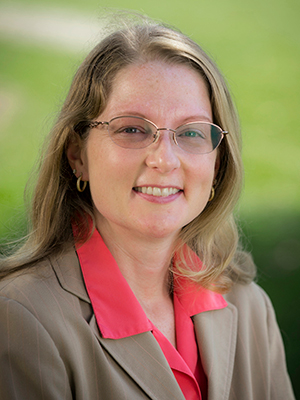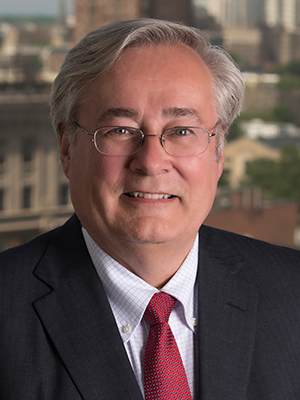Jan. 17, 2018 – Randall Nash and Jill Kastner have a few things in common. Both are Milwaukee attorneys. Both majored in political science and international studies as undergraduates, and both understand the inner workings of the State Bar of Wisconsin.
Both are also running for State Bar president-elect. The winner, decided by a membership vote in April, will serve a one-year post as president-elect, followed by a one-year term as State Bar president. In this article, get to know your 2018 candidates.
Jump to the candidates below:
Jill Kastner: The Public Interest Lawyer
 You can thank an unknown Oshkosh lawyer for steering Jill Kastner to public interest law. She was an undergraduate at U.W.-Oshkosh when she met a lawyer who provided free legal assistance to students through the school’s student association.
You can thank an unknown Oshkosh lawyer for steering Jill Kastner to public interest law. She was an undergraduate at U.W.-Oshkosh when she met a lawyer who provided free legal assistance to students through the school’s student association.
“He was a lot of help to a lot of students,” said Kastner, an attorney with Legal Action of Wisconsin in Milwaukee. “Now, I’m doing very similar work.”
Kastner runs Legal Action’s Supportive Services for Veterans Families program, which provides free legal representation to veterans and their families. “I work with veterans day in and day out. I’m kind of a jack of all trades, although I’m focused primarily on homelessness prevention and removing barriers to sustainable housing.”
Kastner has worked for Legal Action since 2009. But the public interest lawyer, who graduated from UCLA School of Law in 2000, is not a stranger to big firm life.
After law school, she worked in McDermott Will & Emery’s Silicon Valley and Orange County offices, doing high-stakes intellectual property litigation, which was booming.
But she and her husband returned to Wisconsin in 2006. She worked at Reinhart Boerner Van Deuren, S.C., for two years before joining Legal Action of Wisconsin.
“I wanted to give back. I enjoyed my experience at big firms, met a lot of great people and did a lot of intellectually stimulating work,” Kastner said. “Ultimately, I wasn’t particularly fulfilled by it, and I wanted to do something that felt more rewarding.”
Upon her return to Milwaukee, Kastner also got involved in volunteer bar activities. A friend asked her to join the board of the Milwaukee Young Lawyers Association.
“I saw the impact we could have on young lawyers’ lives,” she said. “During my years, we helped with wills for heroes, and we started the young lawyers’ leadership conference. We really focused on issues that were important to young lawyers.”
Kastner went on to serve as president of the State Bar’s Young Lawyers Division (2010-11). In 2011, she was elected to the State Bar’s Board of Governors (board) and has served on various board committees. She also served as board chair (2015-16).
Other Officer Candidates
For information on the 2018 State Bar elections, visit the Elections Page.
Secretary:
Judicial Council:
Kastner says the State Bar can play a large role in helping young lawyers. “Law school debt is probably the No. 1 concern for young lawyers. And a lot of them are hanging their own shingle because they don’t have other employment options,” she said. “The number of jobs available has simply dwindled since I graduated.”
Kastner said the State Bar can do more to educate members about services that can help them, such as the Wisconsin Lawyer Assistance Program (WisLAP) and the ethics hotline. And she would continue to build on initiatives that encourage access to justice.
As president, Kastner would continue State Bar efforts to encourage more lawyers to live and work in rural parts of the state, north of Milwaukee and Madison.
“Access to justice requires that lawyers be accessible. A lot of people in our northern counties are having more problems getting access to an attorney. Attorneys just aren’t there,” said Kastner, who supports initiatives like the State Bar’s annual bus tour.
She would also facilitate continued strategic planning efforts to make the State Bar more nimble and responsive to the needs of all members.
“The bar needs to do fewer things and do them really well,” she said. “We are already starting to bring more of a cost-benefit analysis to the programs and projects that we do. I hope to truly implement that so we can streamline what the bar is doing and make sure that our members are getting value for every dues dollar paid.”
When Kastner isn’t working or volunteering, she and her husband, JP, are busy with two teenage children. She is also a Sunday school teacher and an avid hiker.
Randall Nash: The Solo Practitioner
 Randall Nash had the lawyer bug since he was a young, growing up in the farmlands outside Reedsburg. But he wasn’t exactly sure why.
Randall Nash had the lawyer bug since he was a young, growing up in the farmlands outside Reedsburg. But he wasn’t exactly sure why.
“My concept of being a lawyer was being a prosecutor,” said Nash, now a solo practitioner at Nash Law LLC in Milwaukee. “But that obviously changed, because I have been in private practice my whole career.”
It could have been his grandfather, who graduated from U.W. Law School in the Depression years and became a school superintendent after losing a race to be a district attorney. Nash thought he might walk the prosecutor path his grandfather didn’t.
But things changed after he graduated from U.W. Law School in 1979. He joined Habush Habush & Rottier S.C. as a business litigator. “I took the oath in June and tried my first jury trial in October. I don’t think new lawyers get to do that nowadays.”
Then Nash moved to what is now O’Neil, Cannon, Hollman, DeJong & Laing, S.C., where he spent 29 years doing business litigation. Two years ago, he went solo.
“I thought about going solo for many years and decided to take the plunge,” said Nash. “So far, so good. But you wear a lot of hats. Everything is on your shoulders.”
Nash said flying solo has provided a new perspective on the challenges that Wisconsin solo and small-firm practitioners are facing. Coupled with his State Bar leadership experience, he says he’s well positioned to tackle important issues facing the State Bar.
Nash said his litigation experience will help him be an advocate for members, and his knowledge of the State Bar organization will help him facilitate and leverage ideas.
“For instance, competition is coming from all angles,” Nash said. “When I started out, competition was the lawyer down the street. There’s a lot of things the bar can do to address concerns about competition, and I would certainly want to look at that.”
Over the years, Nash has volunteered for numerous State Bar committees and held various section liaison roles. Since 2014, he has served on the State Bar Board of Governors. He says helping members must be the driving focus of State Bar efforts, while recognizing its broader obligation to the public and the administration of justice.
Nash is also concerned with other issues the bar can help tackle, including the attack on judicial independence, disparate and mass incarceration, and the pay rate for private lawyers who take public defender cases (the lowest in the country).
“I very much believe that Wisconsin has some serious issues with the rate that it’s paying,” Nash said. “One could argue there is a constitutional issue as to whether we are providing a fair defense to people as a result of that. So I’m worried about that.”
As president, Nash would continue efforts on mass and disparate incarceration that Past-president Fran Deisinger started in 2016. “That is really something the State Bar could play a major role in,” Nash said. “A lot of money is going to fund prisons.”
Nash notes outstanding petitions that could change his focus or his agenda as president, including a petition that would create a hybrid dues structure for the bar. But he intends to work on member relations, no matter what happens in 2018.
“When lawyers see their dues bill, they have to know what they are getting for that,” Nash said. “So we have to continually assess what the bar is offering and educate members about the programs and services that can help them.
“At the same time, we are a mandatory bar. We have a voice to speak up on issues affecting the administration of justice.”
In his off-time, Nash likes to hunt and fish. He and his wife, Nell, also spend time with their four adult children.
Leaders Wanted: Run for a 2018 Board Position - Deadline is March 1
Are you a leader, or do you wish to be one? Now’s your chance to put your skills into action – and gain valuable leadership experience by serving on the State Bar Board of Governors.
To run, submit a petition to the State Bar by March 1, 2018, that is signed by 10 active members in your district.
Find out more.
